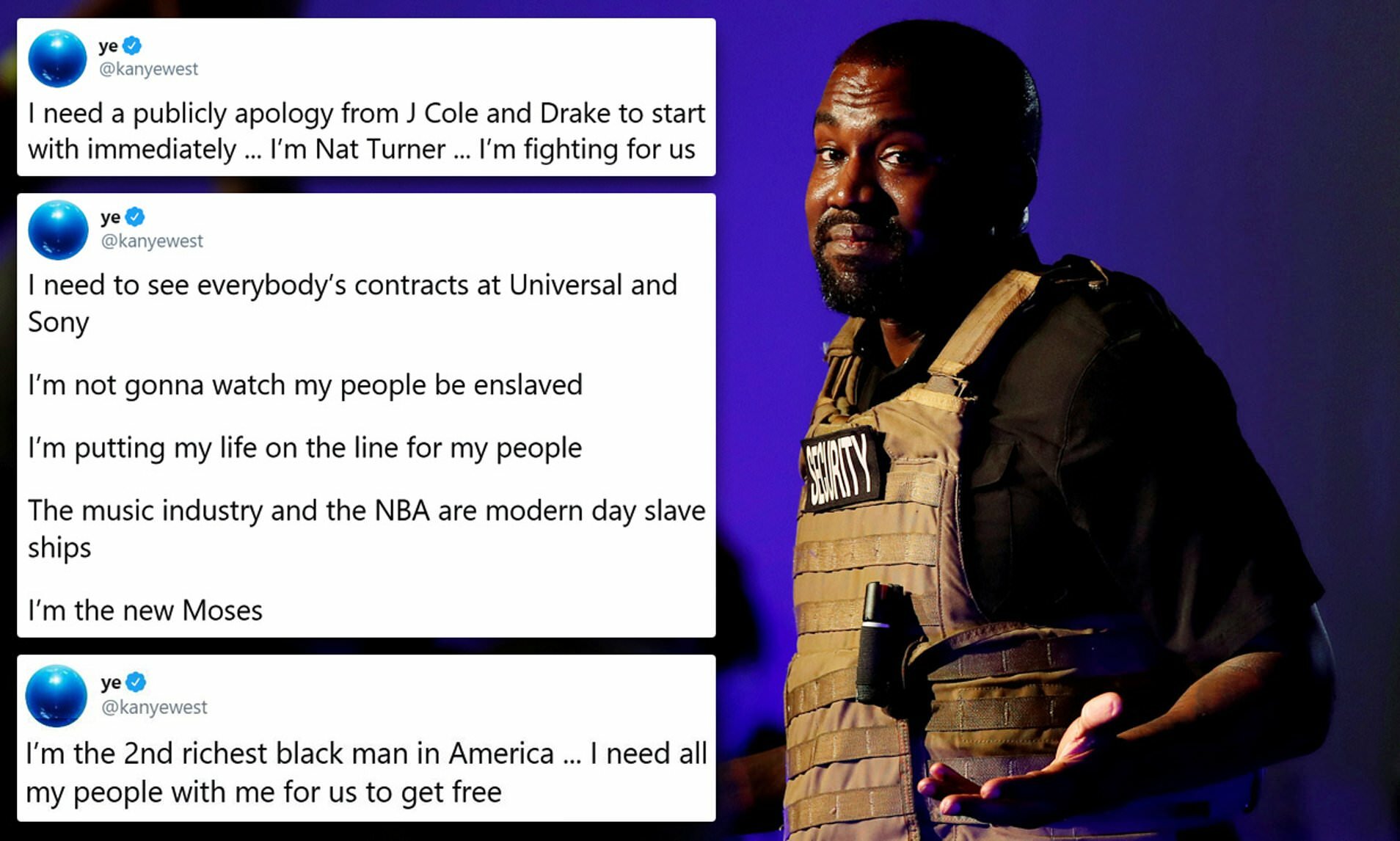5 Things We Can Learn From Kanye West's Battle With UMG & Sony

The past few days have been huge for the music industry, in particular for Multi-platinum Hip-Hop artist, Kanye West. If you haven't been up to speed on Twitter, Kanye sent shockwaves throughout the world of music by requesting UMG to give him back ownership of his master recordings, as well as asking UMG to "free" other artists from their contracts, too.
Kanye explained that he wants his children to gain the rights to his royalties when he dies, and that artists should know what they sign away when it comes to major label deals. In this article, we'll take you through five things we can learn from Kanye's ongoing battle.
I: Read Your Contracts & Get An Attorney
Although aspects of Kanye's deal with UMG may not seem "fair", one point that remains is that he signed them as an adult, and with time to oversee and negotiate the details if he had wanted to. We assume he also had an attorney look over the contract. If he didn't, then let this be a lesson to you to first have someone with professional knowledge of agreements to look through and ensure everything looks good.
It's also important to understand that the reason a Label takes ownership of the work you create for them (in major deals) is that they provide you with a whole lot of stuff, for example, Legal teams, accounting teams, business managers, advertising and promotional support + networks, radio play, publishing exploitation to get your songs into movies, commercials, etc, and a whole lot more.
II: A Label "Advance" Is a Big Loan
Artists often get super excited at the idea of being offered a big advance. I mean it sounds awesome right, being handed $1-$5M in return for making some music? The reality is a little darker.
A Label advance is offered so that you "recoup" (payback) the money they give. That money is also subject to a bunch of fees, for example, here's a break down of how many modern-day artists spend a $1,000,000 label advance.
Advance: $1,000,000
Taxes (at 45%): $550,000 remaining
Business Manager/Lawyer Fee (5-10%): $495,000 remaining
Jewellery: $100k = $395,000 remaining
New Sports Car: $100k = $295,000 remaining
House: $250,000 = $95,000 remaining
Once the label hands you your advance, you make nothing from your music UNTIL you earn them back the advance. Only then do you then get a royalty split on your future sales that come in. So, before jumping ship and signing a deal, ensure that you're not shooting yourself in the foot, or that you're smart with your money. It has to last you until your next advance.
III: Don't Air Dirty Laundry
Although we haven't read through the entirety of Kanye's contract, it goes without saying that most high-level contracts have confidentiality clauses for this very reason. For those that don't know, Kanye tweeted (page by page) his contracts with UMG.
The reason this can backfire for you is if there's a breach of contract clause, along with financial or contract-related penalties. If you don't have the financial backing to support such repercussions, it's always advised not to publically bash a multi-billion dollar corporation with deep pockets.
This isn't to say that you should not stick up for what's right, but airing confidential documents when you swore not to is a) doing bad business, and b) not good for you when the other party strikes back.
IIII: What Are Masters?!
As soon as Kanye posted about wanting ownership of his masters, people were very confused. The music industry itself is incredibly confusing, so we'll do our best to explain in basic terms what "a master" is:
A "Master recording" is essentially the finished song. When you own the master recording, you get to enjoy 100% of the royalties that come with it, whether it's someone paying you to sample a bit of your song, or getting royalties from digital streams and other reuses of your track. Since Kanye doesn't "own his masters" (UMG does), he cannot control how he exploits his music, plus, he only makes a small portion of whatever his music makes, not the lions share - which every artist is rightly owed.
Backtracking to point #2, you will only start earning your share of master recording royalties once you've paid back your advance to the label. So there's that.... :/
IV: Build Leverage Before-hand
Thankfully we're in an era of the music industry where the cost of entry is incredibly low, for example, you can upload unlimited tracks to a digital distributor such as DistroKid for as little as $19.99/year and collect 100% of your net royalties. Back in the day, artists didn't have the freedom to distribute the way they do now. Back then, royalty accounting was a mess (some of it still is today), and promotion wasn't as simple as it is today.
Atlanta-based artist Russ emphasizes the importance of building leverage before even considering a deal. When he went into a partnership with Columbia Records (a division of Sony), he was able to negotiate a deal on HIS terms as he had already spent many years building leverage for his brand. He had released 90+ songs and was already making in excess of $100k+ per month independently. He also retain ownership of his music, meaning Columbia had none. What they did do, however, was create a profit split agreement, meaning for the services Colombia delivered on specific tracks, they would take a split of the profits.
Never go into a deal and sign away your ownership if you can help it. Build by yourself over time and then negotiate a deal on YOUR terms. Once again, get an attorney to help you.